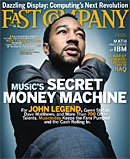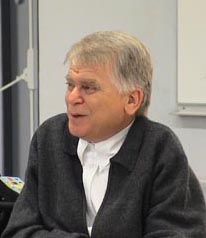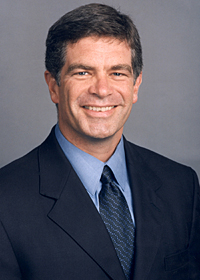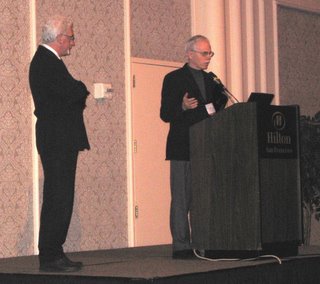I see that Brian May, guitarist for dinosaur rock group Queen (“Bohemian Rhapsody”, “We are the Champions”, etc.) is finishing off his doctoral dissertation in astrophysics. Nice to have something if that rock ‘n roll thing doesn’t work out.
At the recent “Georgefest” celebration of George Nemhauser’s 70th birthday, dinner conversation (for Ralph Gomory, Tom Magnanti, and me) came to “famous operations research Ph.D.s”. Of course, the interest was not those famous for OR, but famous for something else. Here is what we came up with, augmented with a bit of web search after dinner (either with a Ph.D. or with a well known OR paper):
- John Malone, chairman of Liberty Media, cable magnate, and number 488 on Forbes magazine’s billionaires listing (with $2 billion). Got his Ph.D. from Johns Hopkins. His paper with Manny Bellmore on the traveling salesman problem continues to be referenced a lot.
- Bill Gates of Microsoft, coauthored a paper with Christos Papadimitriou on a sorting algorithm, though he did not receive a Ph.D. (not counting his four honorary ones).
- Virgil Carter, quarterback for the NFL’s Cincinatti Bengals, wrote papers on football and OR for Operations Research and Management Science in the 1970s (but did not get a Ph.D.: he is an MBA from Northwestern).
- Hedy Lamarr, actress and famous beauty, invented a method for hopping frequencies in wireless communication.
- Dan Gimaldi, actor who played the twin Parisi brothers on the Sopranos, has a masters in OR and a Ph.D. in data processing. He has a position in the Department of Mathematics and Computer Science at Kingsborough Community College. Anyone know what he works on?
- Gomory himself is a good example: terrific OR credentials but even better known as President of the Sloan Foundation.
Gates and Lamarr aren’t really OR, but they are close. There are a number of famous economists with OR backgrounds (for instance, my friend Finn Kydland, 2004 Nobel laureate is really an OR person in the guise of an economist — trust me, Finn, that is is compliment!) but economics is pretty close to OR at times. So who else has an OR PhD or a paper in the OR literature but is better known outside of our field?
 Brenda Dietrich, President of
Brenda Dietrich, President of  It is with great sadness that I pass along news of the death of Peter Hammer. Here is the announcement I received from Endre Boros:
It is with great sadness that I pass along news of the death of Peter Hammer. Here is the announcement I received from Endre Boros: … the University of Delaware, at least. Pat Harker, former editor of Operations Research and plenary speaker at this year’s
… the University of Delaware, at least. Pat Harker, former editor of Operations Research and plenary speaker at this year’s  The winner of this year’s
The winner of this year’s 